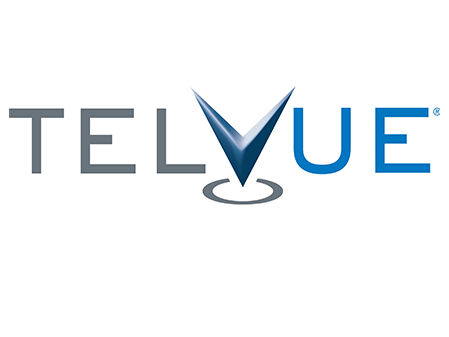FCC Third Report and Order
In its Third Report and Order released on August 2, 2019 the FCC sidestepped the issue of charging for channel capacity, promising to return to this issue within the year. It also declared that any PEG equipment fees were NOT deductible from franchise fees. So transmission equipment, lines, and installation costs (Section 49), and any other PEG-related capital costs (Section 39) are not deductible from the 5% cap on "fees, taxes, or assessments of any kind." However, the the Report & Order made clear that any operating costs in support of PEG channels ARE deductible from the 5% franchise fee. So video service providers COULD start charging for transmitting PEG programming to the headend and for maintaining transmission lines. This could amount to quite a bit of money per month.
Because Wisconsin has one of the worst laws for PEG in the country, the Third Report and Order did not do as much damage here as it is doing elsewhere. In fact, the FCC affirmed that Wisconsin COULD be supporting PEG TV MORE than it currently is by requiring operators to provide more capital support.
PEG Capital Costs
Providing Access Channels
One of the key provisions in the Cable Act that the FCC is interpreting is 622(g)(2)(C) which says,
"The term "franchise fee" does not include in the case of any franchise granted after such date of enactment [of the Cable Act], capital costs which are required by the franchise to be incurred by the cable operator for public, educational, or governmental access facilities." PEG facilities are defined in law as "(A) channel capacity designated for public, educational, or governmental use; and (B) facilities and equipment for the use of such channel capacity."
The FCC found that PEG capital costs are not subject to the 5% franchise fee cap. The FCC had contemplated restricting “capital costs” to “facility construction costs,” but settled on a broad definition of capital. The final version of the order is slightly stronger than the draft.
"Based on this statutory language and legislative history as well as the current record [added], we believe at the present time [it formerly said “clarify” in the draft] that the definition of "capital costs" in section 622(g)(2)(C) [“may” was struck out] includes equipment purchased in connection with PEG access facilities, even if it is not purchased in conjunction with the construction of such facilities. " (Section 39)
In coming to this conclusion the FCC quote Black's Law Dictionary and an accounting textbook on the definition of capital costs.
Despite the fact that the FCC found that "capital costs" for PEG "facilities" are not subject to the 5% franchise fee cap and despite the fact that "facilities" are defined in the Cable Act as including the channels, and despite the fact that channels certainly seem to be a capital cost under the definitions it cited, the FCC was STILL not willing to close the door on excluding access channels from the franchise fee cap at some point in the future and in fact talked about revisiting this issue within a year.
"...we find that the questions raised by channel capacity are complex, and that the record is not developed enough to allow us to answer them. We therefore defer this issue for further consideration. In the meantime, we find that the status quo should be maintained, and that channel capacity costs should not be offset against the franchise fee cap. This approach will minimize disruption and provide predictability to both local franchise authorities and cable operators." (Section 44)
While the cable industry pushed hard for including the market-based value of channels in the cap, saying it was an “operating cost,” it could not come up with a viable way to set a value. The FCC declined to come up with a specific number of access channels or origination lines that would be considered "adequate," saying that it depends on community needs.
FCC Sees Benefits in PEG
PEG Support is a Joint Effort
The FCC also “recognizes the importance of PEG programming:”
We acknowledge the benefits of PEG programming and find that our interpretations adopted above are faithful to the policy objectives of the Cable Act. A significant number of comments in the record stressed these benefits, which include providing access to the legislative process of the local governments, reporting on local issues, providing a forum for local candidates for office, and providing a platform for local communities - including minority communities. Of course, Congress itself similarly recognized the importance of PEG programming by authorizing LFAs to require the provision of PEG channel capacity in the Cable Act, and by carving out certain costs of such programming from the five percent cap on franchise fees. Nothing in this proceeding disturbs the Commission's longstanding view that PEG programming serves an important role in local communities. (Section 50)
And it also acknowledged that the Cable Act envisioned joint responsibility between municipalities and cable operators for the support of PEG television.
The Cable Act itself, as interpreted in this Order, balances these costs and benefits. By excluding PEG-related capital costs from the five percent cap on franchise fees, but leaving other PEG- related exactions subject to that cap, the Cable Act divides the financial burden of supporting PEG programming between LFAs [Local Franchising Authorities] and cable operators. By counting a portion of these costs against the statutory cap on franchise fees that LFAs may collect, the Cable Act allows LFAs to seek support for PEG programming from cable operators, while guarding against the possibility that LFAs will make demands for such programming without regard to cost. (Section 52)
Bottom line: Without a Change in State Law, Wisconsin Cities Could Lose Revenue
By separating “channel capacity” from “upstream transmission,” and allowing operators to charge for the operating cost of transmitting a signal from an origination point to its headend and by allowing operator to charge for maintaining equipment and lines, Wisconsin municipalities may see an increase in expenses related to PEG because of this order. Other states will be harder hit. States and local franchise agreements calling for PEG fees for operating costs, I-Nets or cable service to schools and other public buildings are required by this order to modify their agreements/laws. Wisconsin law prohibits all of these things.
For Wisconsin, the Report and Order affirms that the State of Wisconsin could allow communities to receive MORE CAPITAL SUPPORT from Video Service Providers. Getting support for PEG Capital Expenses would offset any charges for PEG Operating Expenses we may incur due to this Report and Order. Making Wisconsin law consistent with this Report and Order will be one of WCM’s goals for this session. WCM will also participate in any judicial action that is undertaken to oppose this R & O.







